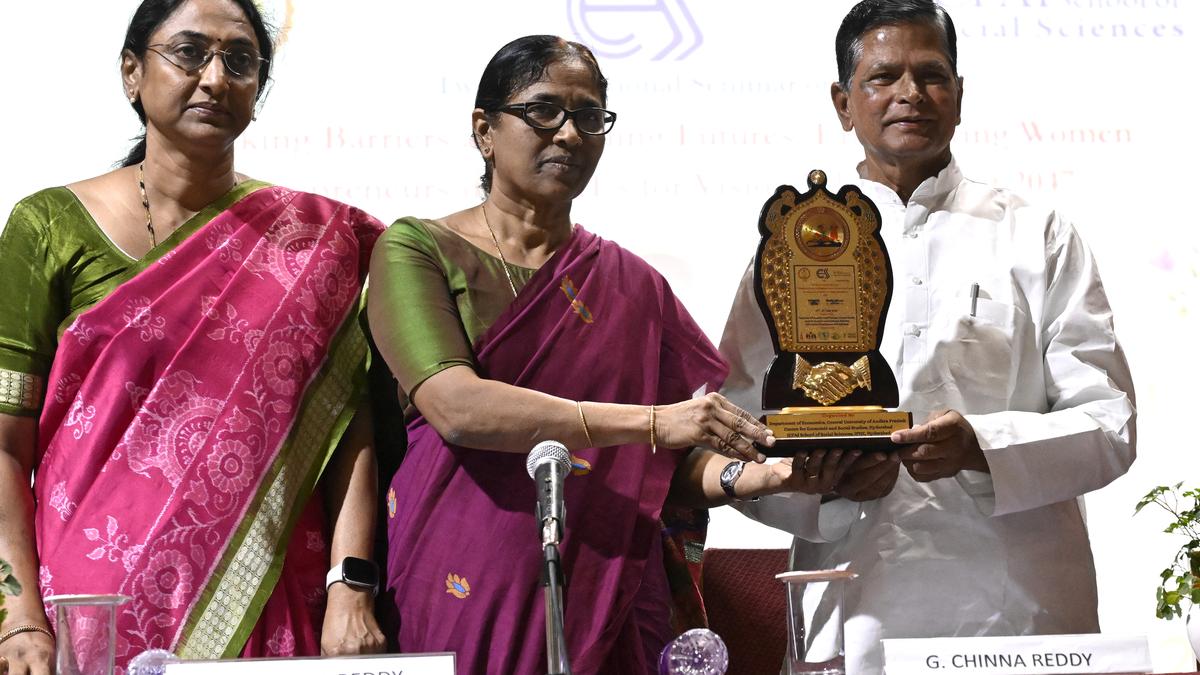
Centre for Economic and Social Studies officials felicitating G. Chinna Reddy, Vice Chairman of Telangana State Planning Board, at the two-day national seminar in Hyderabad on Friday.
| Photo Credit: RAMAKRISHNA G.
A two-day national seminar on empowering women entrepreneurs in Micro, Small and Medium Enterprises (MSMEs) began at the Centre for Economic and Social Studies (CESS) here on Friday.
Jointly organised by Central University of Andhra Pradesh, ICFAI School of Social Sciences and CESS, along with Indian Council of Social Science Research (ICSSR), SERP-Telangana, Stree Nidhi, SIDBI-Telangana and WASSAN, the event highlights the crucial role of women entrepreneurs MSMEs as a driving force toward India’s long-term development vision or ‘Viksit Bharat @2047’.
Telangana State Planning Board vice-chairman G. Chinna Reddy, explaining the State government’s commitment to women-centric policies, SHGs and MSME development, stressed the need to integrate sectors such as housing, textiles and food processing under a comprehensive development model. This will empower women across all dimensions of human progress, he said.
There is also the need for improved access to institutional credit and greater policy support for women entrepreneurs, he added.
Registrar (in-charge) of Central University of Andhra Pradesh, C. Sheela Reddy emphasised the transformative potential of MSMEs and the importance of amplifying women’s voices in national development. Vice-Chancellor of ICFAI Foundation for Higher Education L.S. Ganesh underscored the need to contribute to value addition in India’s workforce through better integration and capacity-building.
Director of School of Enterprise Management (SEM) at the National Institute for MSME, Eranti Vijaya called for targeted capacity-building and institutional support to bridge gaps and challenges being faced by women in MSMEs — limited awareness of government schemes, lack of bank-friendly evaluation mechanisms for micro-enterprises and inadequate technical and digital literacy among rural women.
Published – July 19, 2025 12:53 am IST



